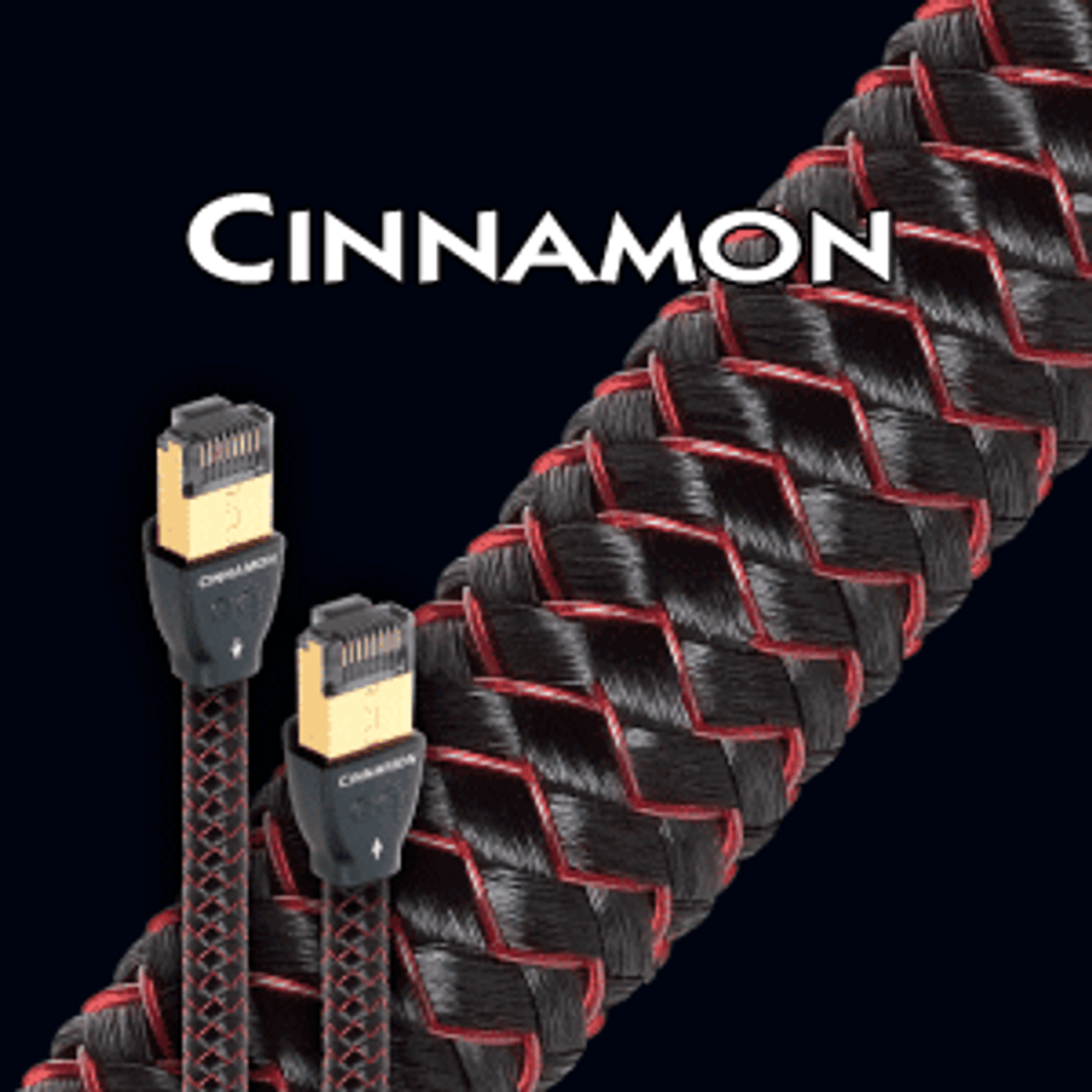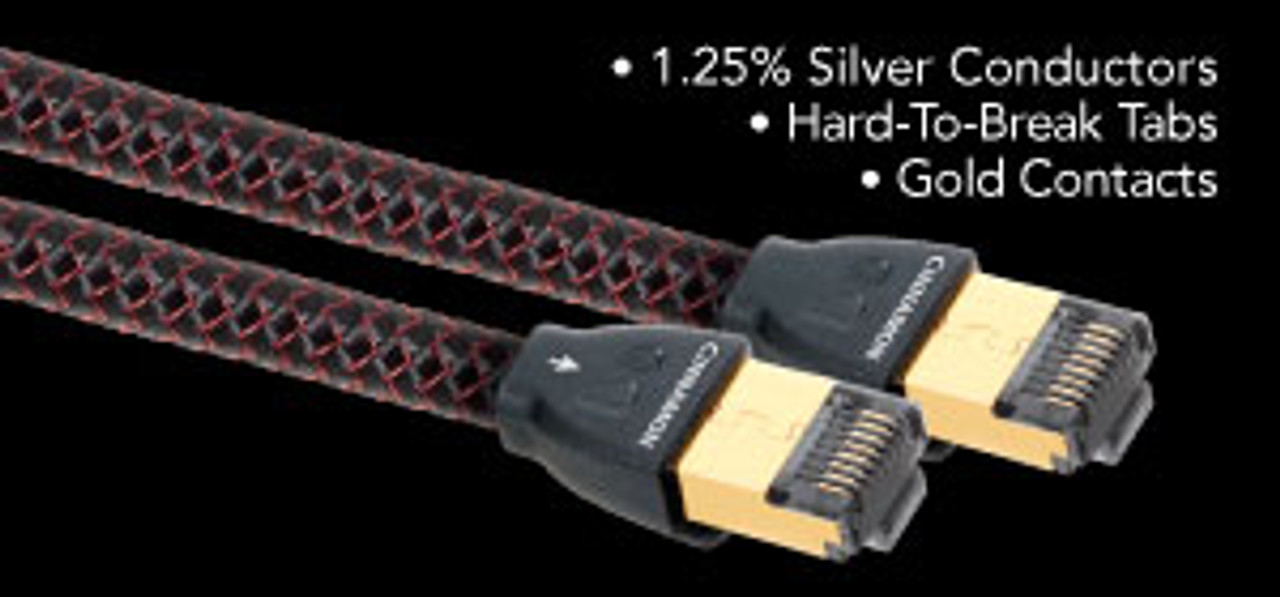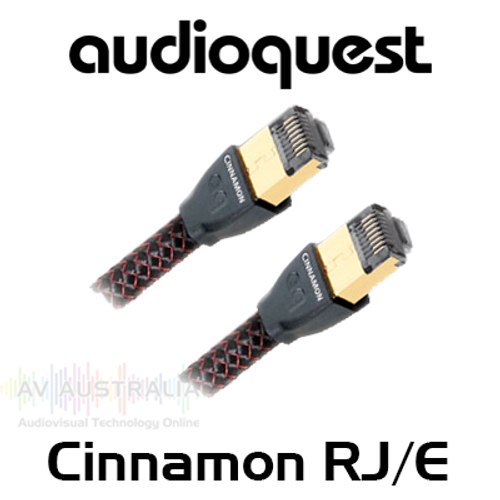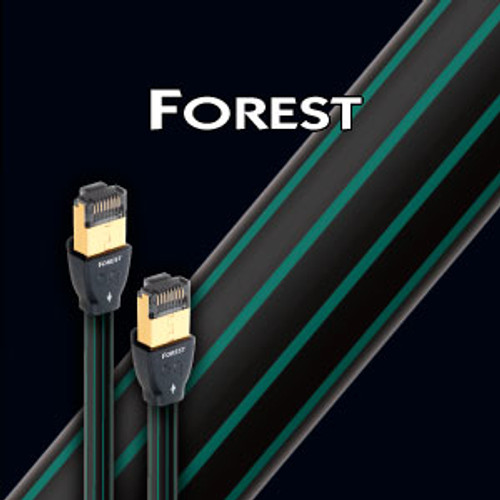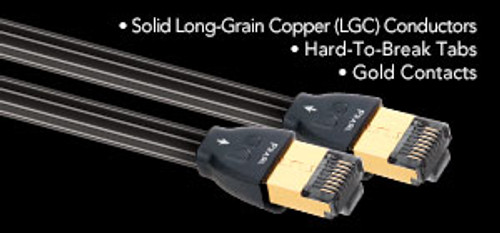Product Description
Key Features
• Solid 1.25% Silver conductors
• Solid High-Density Polyethylene insulation
• Gold-Plated nickel connectors with 100% shield coverage
• High-speed, Low time delay (latency), Significant distance capability
• CMG (CL3 & FT4) Rated Black/Red braid (3m or less) / PVC jacket (5m or longer)
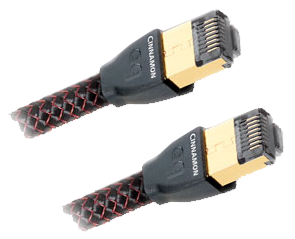
Cinnamon
Over the past several years there’s been a revolution in the way people store, distribute, and access digital media (in real time), including photos, movies, and, of course, music. No longer dependent on physical media, our media is often data that’s moved from multiple devices to multiple locations. For audio applications and protocols, audio over Ethernet offers the virtues of high-speed, low time delay (latency), significant distance capability (328 feet without an active booster or repeater), and extremely low-jitter, bit-perfect communication. Who wouldn’t want all of these things?
Solid 1.25% Silver Conductors
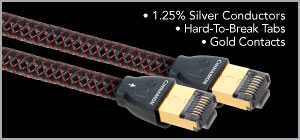 Solid conductors eliminate strand-interaction distortion and reduce jitter. Solid silver-plated conductors are excellent for very high-frequency applications, like Ethernet audio. These signals, being such a high frequency, travel almost exclusively on the surface of the conductor. As the surface is made of high-purity silver, the performance is very close to that of a solid silver cable, but priced much closer to solid copper cable. This is an incredibly cost effective way of manufacturing very high-quality Ethernet cables.
Solid conductors eliminate strand-interaction distortion and reduce jitter. Solid silver-plated conductors are excellent for very high-frequency applications, like Ethernet audio. These signals, being such a high frequency, travel almost exclusively on the surface of the conductor. As the surface is made of high-purity silver, the performance is very close to that of a solid silver cable, but priced much closer to solid copper cable. This is an incredibly cost effective way of manufacturing very high-quality Ethernet cables.
Solid High-Density Polyethylene Insulation
Any solid material adjacent to a conductor is actually part of an imperfect circuit. Wire insulation and circuit board materials all absorb energy (loss). Some of this energy is stored and then later released as distortion. Solid High-Density Polyethylene Insulation ensures critical signal-pair geometry while minimizing insulation-induced phase distortion.
Terminations
Gold-plated nickel connectors with 100% shield coverage.
High-Speed Data Capacity
The Cat 7 cable standard has been created to allow 10- Gigabit Ethernet over 100 m of copper cabling.
Directionality
All audio cables are directional. The correct direction is determined by listening to every batch of metal conductors used in every AudioQuest audio cable. Arrows are clearly marked on the connectors to ensure superior sound quality. For best results have the arrow pointing in the direction of the flow of music. For example, NAS to Router, Router to Network Player.


